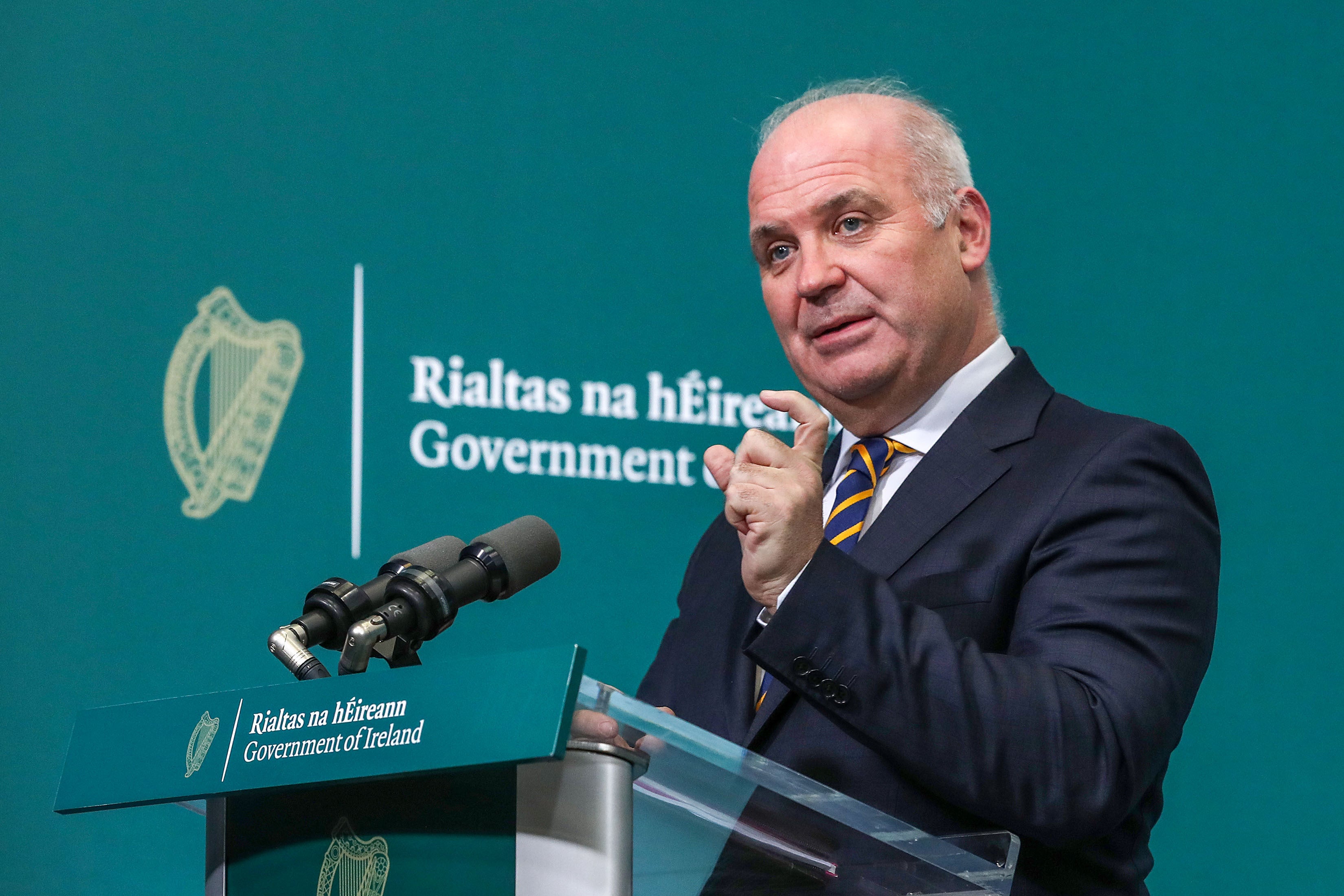CMO to tell Health Committee of ‘ongoing need’ for Covid-19 measures
Dr Tony Holohan is set to appear before the Oireachtas health committee on Wednesday.

Your support helps us to tell the story
From reproductive rights to climate change to Big Tech, The Independent is on the ground when the story is developing. Whether it's investigating the financials of Elon Musk's pro-Trump PAC or producing our latest documentary, 'The A Word', which shines a light on the American women fighting for reproductive rights, we know how important it is to parse out the facts from the messaging.
At such a critical moment in US history, we need reporters on the ground. Your donation allows us to keep sending journalists to speak to both sides of the story.
The Independent is trusted by Americans across the entire political spectrum. And unlike many other quality news outlets, we choose not to lock Americans out of our reporting and analysis with paywalls. We believe quality journalism should be available to everyone, paid for by those who can afford it.
Your support makes all the difference.Dr Tony Holohan is set to advise politicians that there will be an “ongoing need” to retain Covid-19 measures such as mask wearing.
The chief medical officer is set to appear before the Oireachtas health committee on Wednesday.
In his opening statement, seen by the PA news agency, Dr Holohan will recommend the continued use of protective measures in schools and mask wearing in all the settings where they are currently required.
The policy on mask-wearing for school children is set to be reviewed at the end of February.
We must remain vigilant and ensure that our response is agile and flexible, with an ability to respond rapidly and appropriately to any emerging threat.
While Dr Holohan will give a largely positive update to the health committee, he also warns that “the pandemic is not over”, and that other variants of concerns are likely to emerge after Omicron
“In advising that social and economic restrictions could be removed, the Nphet (National Public Health Emergency Team) stressed that the pandemic is not over and that with a significant level of infection nationally, Covid-19 still poses a risk to public health,” Dr Holohan will tell TDs and Senators.
“In this regard, there will be an ongoing need to retain some public health measures to reduce risk.
“Protective measures should remain in place in primary and secondary schools, masks should continue to be worn in all settings where currently regulated for, and we must continue to encourage everyone to complete their primary and booster programmes of vaccination.”
Dr Holohon will also highlight the importance of remaining vigilant against the virus, with a risk of new variants emerging.
“The evolution of Sars-CoV-2 can be expected to continue, Omicron is unlikely to be the last Variant of Concern (VOC) we will have to face, and the global public health risk remains very high,” he will tell the committee.
“Therefore, we must remain vigilant and ensure that our response is agile and flexible, with an ability to respond rapidly and appropriately to any emerging threat.”
The importance of self-isolation for symptomatic cases will also be underlined.
“It remains critical that if you have any symptoms of Covid-19 you self-isolate immediately,” Dr Holohan is expected to say.
“Those who are identified as a close contact of a confirmed case need to follow the appropriate public health measures.”
However, Dr Holohan will also state that the current epidemiological situation is “broadly positive” and that the country is in a “much improved situation”.
Key indicators such as case numbers, hospital and ICU admissions and demand for testing are all reducing.
Speaking ahead of the meeting, committee chair Sean Crowe said: “The lifting of virtually all lockdown restrictions has given the country a welcome boost.
“As we reach the two-year anniversary of Covid-19 reaching our shores, tomorrow is an opportune time to meet with Nphet and hear the latest projections on the spread of the Omicron variant, uptake of the booster vaccines and contingency plans for another variant.
“The Covid-19 pandemic is not over and the Omicron variant is unlikely to be the final variant of concern.
“It is crucial that we reflect on the lessons of the past two years in order to chart a better path ahead for the health service.”